The Puppeteers of Protest: How Naive Students are Manipulated by Chaos-Makers
Unmitigated Communion makes students prime targets for psychopathic personalities
Editorial Note: Zachary McClanahan is a second-year PhD student in marketing with a specialty in consumer psychology researching associations between political ideology and dark triad traits. He is interested in why students are increasingly drawn to movements that contradict the very values they claim to uphold. In exploring this paradox "unmitigated communion," stood out to him as a key determinant of this phenomenon. I have also previously noted unmitigated communion as a candidate construct that might explain a good deal of the current political and cultural chaos we are living through. Thus, it made good sense to ask Zachary if he would like to provide readers of the Multilevel Mailer an overview of this construct and its potential links to the current social-political turbulence we are amidst. This is his report. I have provided some light guidance and editing.
This article reflects the author’s personal interpretations and opinions and should not be considered a definitive representation of research findings or academic conclusions.
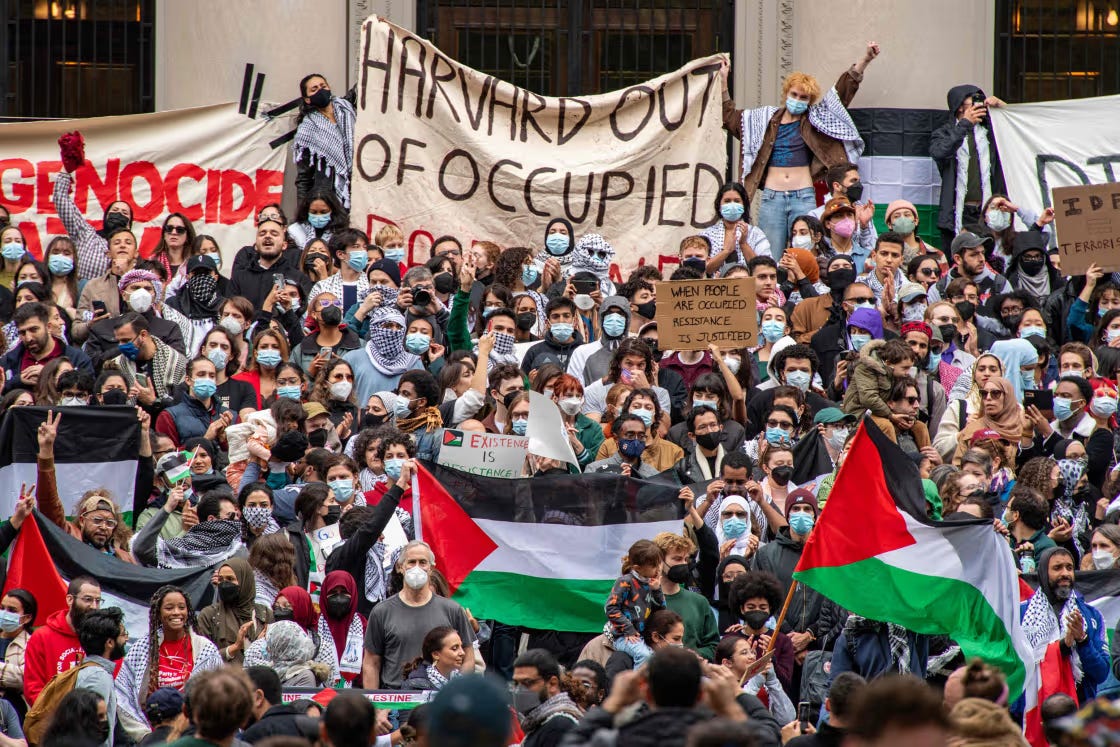
College campuses, once known for their diversity of thought, have become breeding grounds for activism, protest, and indoctrination. While some of these protests are rooted in genuine concerns, other movements take perplexing turns—like when students defend ideologies or governments that would oppress them if given power. To understand this phenomenon, we look at two key psychological forces driving these movements: unmitigated communion and Cluster B psychopaths.
Unmitigated Communion Individuals (UCIs): The Compassionate Drivers
Unmitigated Communion is characterized by an overwhelming focus on others to the detriment of one’s own needs. Unmitigated Communion Individuals (UCIs) derive their self-worth from helping others, often sacrificing their well-being in the process. This personality trait is more common among women, and given that women now make up the majority on many college campuses, UCIs are likely a significant presence in student bodies.
While Communion—a balanced concern for others and oneself—is generally positive, it becomes a problem when it shifts into unmitigated communion. Healthy communion fosters strong social bonds and well-being by valuing both self and others. However, when concern for others becomes overwhelming and self-sacrificing, personal boundaries are disregarded. This leads to exploitation and psychological distress, making individuals susceptible to manipulation and turning communion into unmitigated communion.
On campuses, UCIs may be drawn to causes that emphasize solidarity, equality, and justice—values that align with their intrinsic desire to place others above themselves. However, this deep empathy can lead to supporting causes without critically examining the implications. For example, UCIs might passionately defend a foreign government or ideology because they perceive it as marginalized or oppressed, without realizing that the very regime they support could be deeply harmful to them. Even worse, empathy is a spotlight, not a flood light, so when you focus on one side’s vices, you ignore the other. Some supporters have baffled the world by championing a country that if they were to ever set foot there, they would likely face execution. This illustrates the extreme self-sacrifice driven by unmitigated communion.
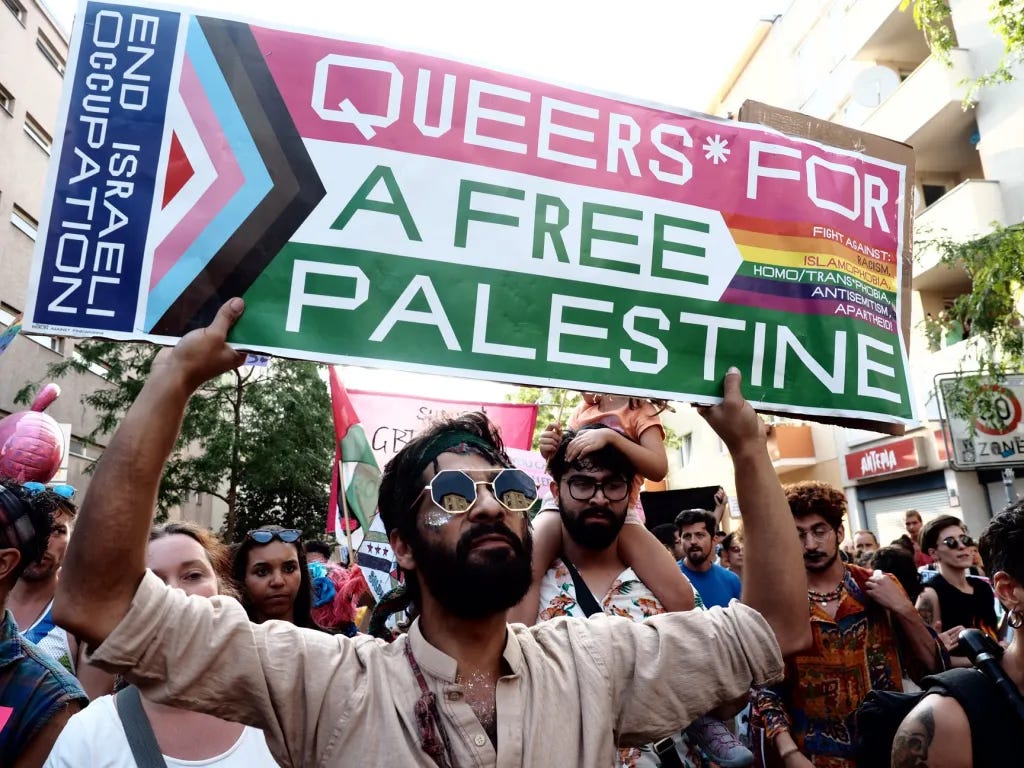
Cluster B Psychopaths (CBPs): The Manipulative Leaders
Enter the Cluster B Psychopaths (CBPs)—individuals with personality traits such as narcissism, borderline personality, histrionic personality, and antisocial personality disorder. These individuals are often charismatic, manipulative, and adept at exploiting the emotions of others. On college campuses, CBPs might rise to leadership positions within protest movements, using their charm and persuasive abilities to attract followers.
CBPs thrive on control and dominance, and they quickly recognize the potential of UCIs as loyal, uncritical supporters. They manipulate the UCIs desire to sacrifice themselves, framing the cause in emotionally charged, black-and-white terms that appeal to the UCI's need to be part of something greater than themselves. UCIs, driven by their sacrificial nature, will not likely see (Or perhaps unconsciously ignore) that they are being used to further the CBPs' own agendas, which are often more about power and influence than about justice or equality.
How Cluster B Psychopaths Exploit Campus Dynamics
For individuals with Cluster B personality traits, particularly those with Antisocial Personality Disorder (ASPD) or Narcissistic Personality Disorder (NPD), chaos is not just a byproduct of their actions—it is often the desired outcome. These individuals are characterized by a need for control, power, and the satisfaction of their personal desires. They are unlikely to be primarily motivated by any genuine commitment to the causes or ideologies they might temporarily align with.
In the context of campus protests, CBPs may instigate or escalate conflict not because they believe in the cause, but because they thrive in environments where social norms are disrupted and transgressed, and they can exert influence over others. The unpredictability of chaotic situations provides them with opportunities to manipulate, deceive, and exploit those around them, particularly individuals with unmitigated communion, who are more focused on being seen helping others than on safeguarding their own interests. For CBPs, the end goal is not the success of the movement but the personal gratification that comes from watching others follow their lead, sowing discord, and benefiting from the turmoil they create.
So how would they go about this?
Narcissistic Leadership and Exploitation
Students with Narcissistic Personality Disorder (NPD) often gravitate towards leadership roles within protest movements, driven by their need for admiration and recognition. These narcissistic leaders are typically charismatic, with grandiose ideas that can easily rally support. However, their motivation is not rooted in the cause itself but in the attention and power they gain from leading it.
UCIs are driven by a strong desire to contribute to collective efforts that they can be praised for joining and are particularly vulnerable to narcissistic leaders. These leaders use charm and persuasive rhetoric to present their cause as a noble moral crusade, drawing in UCIs who eagerly invest time and resources, even at the expense of their own best interests in pursuit of attention.
Narcissists skillfully deflect criticism and maintain focus on their vision, often leading UCIs to overlook the potential dangers. As a result, UCIs may support movements that promote oppressive ideologies, unaware they are being manipulated by their commitment to the perceived righteousness of the cause.
Antisocial Deception for Personal Gain
Students with Antisocial Personality Disorder (ASPD) are skilled at exploiting chaos and manipulating others for personal gain. Within a protest movement, these individuals are unlikely interested in the cause itself, but rather in the opportunities it presents for deception, disruption, or personal advancement.
Individuals with ASPD may manipulate UCIs by convincing them to take significant risks or make sacrifices for the cause. This may include engaging in illegal activities, putting themselves in harm’s way during protests, or dedicating extensive time and resources to the movement. Meanwhile, the antisocial individuals pursue hidden agendas, such as networking for personal gain, causing disruption for its own sake, or even using the protest as a cover for more nefarious activities.
UCIs, driven by their deep-seated need to help and support others, may not recognize that they are being used as pawns in a larger, self-serving scheme. The antisocial individuals’ lack of empathy and moral responsibility makes it easy for them to exploit the UCIs’ altruism without regard for the consequences.
Borderline Emotional Manipulation
Students with Borderline Personality Disorder (BPD) might use intense, polarized rhetoric to emotionally manipulate others into joining or supporting a protest. These individuals often see the world in black-and-white terms, framing the cause as an all-or-nothing battle between good and evil.
UCIs, who are sensitive to emotional appeals and driven by a desire to protect the vulnerable, would be particularly susceptible to this kind of manipulation. The BPD individual might convince them that failure to support the protest equates to a moral failing or a betrayal of the oppressed. This intense emotional appeal, combined with threats of physical or emotional abandonment and interpersonal relational triangulating that often characterizes BPD, can compel UCIs to engage deeply with the protest, even when it involves supporting a cause that is ultimately harmful to them.
The inability of UCIs to set boundaries leads them to overextend themselves emotionally and physically, driven by the borderline individual’s intense affective expressions. This dynamic can result in UCIs sacrificing their own well-being and resources to support a cause that they might not fully understand or agree with.
Histrionic Dramatic Influence
Those with Histrionic Personality Disorder (HPD) might dominate the protest with attention-seeking behaviors, using emotionally dramatic behavioral displays to keep the cause in the spotlight. These individuals thrive on being the center of attention and may use exaggerated or even false narratives to maintain their influence within the movement.
UCIs, motivated by a desire to help and connect with others, might be easily drawn into these dramatic displays. The histrionic individual could persuade them to amplify the message of the protest, often without scrutinizing the validity of the claims being made. As a result, UCIs may become complicit in spreading misinformation or supporting increasingly extreme and theatrical directions within the protest.
The histrionic individual’s need for constant validation can drive the movement to escalate in ways that are counterproductive or even dangerous. UCIs, focused on the emotional connection and the perceived righteousness of the cause, may continue to offer uncritical support, unaware that they are being manipulated into furthering a cause that might ultimately work against their own interests.
Selective Outrage to Fuel Psychopaths: The Role of Left-Wing Authoritarianism and Critical Theory
Student protests against the Gaza conflict are often driven by powerful emotional responses to perceived injustices, with a focus on the suffering of Palestinians. This selective outrage, however, is not only a reflection of emotional resonance but is also deeply rooted in Left-Wing Authoritarianism (LWA) and its ideological underpinnings in Critical Theory.
Modern left-wing ideology, shaped by Critical Theory, views the world through power dynamics. Originating from the Frankfurt School, Critical Theory builds on Marxism's critique of purported capitalist power imbalances, extending this to cultural and social structures. In this view, entities like Israel, due to their success are often seen as oppressors, and their unsuccessful enemies are always seen as oppressed.
To compound these problems, Political Correctness (PC) becomes a means of control for CBPs wielding LWA. PC within this framework is not simply about promoting sensitivity or respect but is used as a tool to enforce ideological conformity. PC serves to silence dissent and reinforce the narrative that aligns with Critical Theory’s view of power dynamics. This often results in the portrayal of Israel as an imperialist force and makes criticism of this view impossible. This overshadows other Middle Eastern conflicts that do not fit the same ideological mold.
Israel’s success as a bastion of Middle Eastern democracy is undoubtedly related in part to the country’s respect for human rights, especially women’s rights, which the Hamas regime brutally represses:
Despite this, the narrative shaped by Critical Theory conveniently overlooks these factors, focusing instead on Israel's military and economic power relative to its neighbors. This framing positions Israel as the "oppressor" and Palestinians as the "oppressed," making the Israel-Palestine conflict a focal point for student activists who view the world through a simplistic lens of power and subjugation. Other Middle Eastern conflicts lack this attractive framing.
UCIs seeking self-worth by supporting perceived underdogs are vulnerable to this framing. Their need for validation and the appeal of Critical Theory drive their passionate involvement in protests. However, their naivety and desire for recognition make them easy targets for CBPs, who exploit these dynamics. This is evident in students like the Columbia University student who joined a protest for Palestine without understanding the reason.
“A Columbia University student who rushed down to NYU’s campus in solidarity with protesters there said on camera that she actually had no idea what they were protesting, eventually admitting she needed to be ‘more educated’ on the issue.”
In recent years, social media has increasingly played a role in incubating and spreading behavioral psychopathology, as discussed in recent research on social media's influence on mental health. Platforms like TikTok and Tumblr likely serve to amplify psychosomatic conditions and self-diagnosed mental health issues among young users, creating a form of social contagion. This environment can exacerbate the tendencies of UCIs to seek validation through activism and intensify the manipulative tactics of CBPs, who exploit these platforms to spread ideologically driven narratives and recruit followers to their causes. In this way, the opposition to Israel on college campuses is not just a matter of geopolitics, but is deeply intertwined with modern left-wing ideology and its critical examination of power structures.
Conclusion: Navigating the Complex Dynamics of Campus Activism
The mix of unmitigated communion and Cluster B personality traits within the context of left-wing authoritarianism and critical theory creates a potent mix on college campuses. Students, driven by a need for attention and validation under the guise of altruism, often find themselves entangled in movements that may contradict their values or interests. This dynamic is further complicated by the presence of individuals with Cluster B traits who manipulate these students for malevolent purposes, often leading to outcomes that are more about power, control, and chaos than genuine social change. This framework is kept in place by strict adherence to a PC culture of “being nice” or “not offending” anyone, keeping ideas that challenge LWA marked as verboten.
But this raises a critical question: Why are we teaching students critical theory at all, considering that it often seems more tied to jealousy and resentment than to genuine progress? If this ideology is so compassionate, why as the number of college-educated students has grown, inequality has soared? If critical theory encourages students to view the world through a lens of power dynamics that breeds divisiveness and animosity, rather than fostering true understanding and positive change, are we truly equipping them to contribute constructively to society? Shouldn’t the focus be on promoting critical thinking that leads to real solutions, rather than on perpetuating a mindset of victimhood and envy?
It’s becoming increasingly obvious to everyone—except perhaps those within academia—that universities are no longer producing the excellent individuals they were once known for cultivating. So, when are we going to wake up and demand that our educational institutions return to their true purpose: shaping well-rounded, critical thinkers who are capable of leading with integrity, contributing to society, and driving real progress? The time has come to reassess our priorities and ensure that the next generation is prepared not just to challenge the status quo, but to build a better, more just world based on wisdom, empathy, and real understanding.



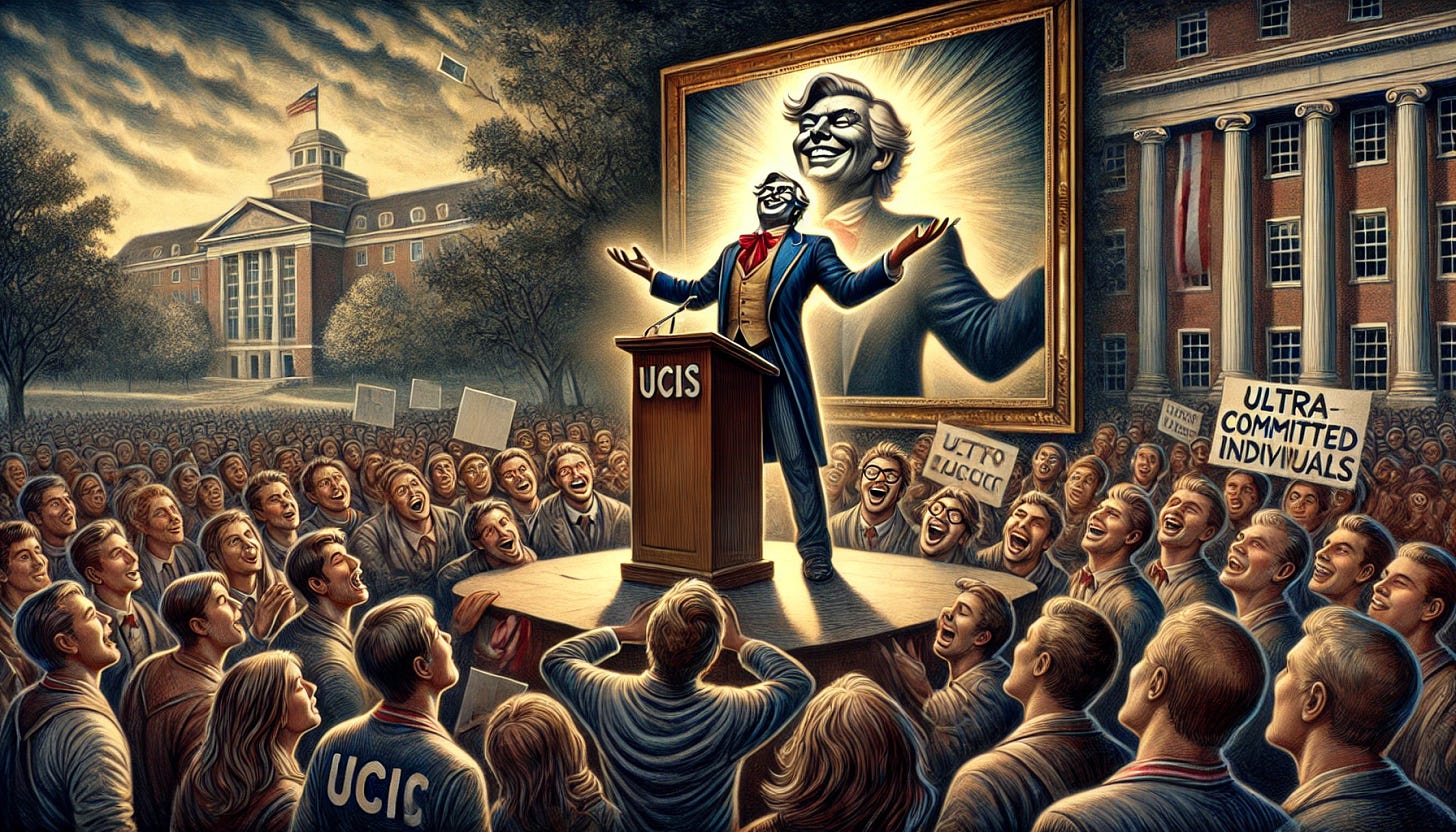
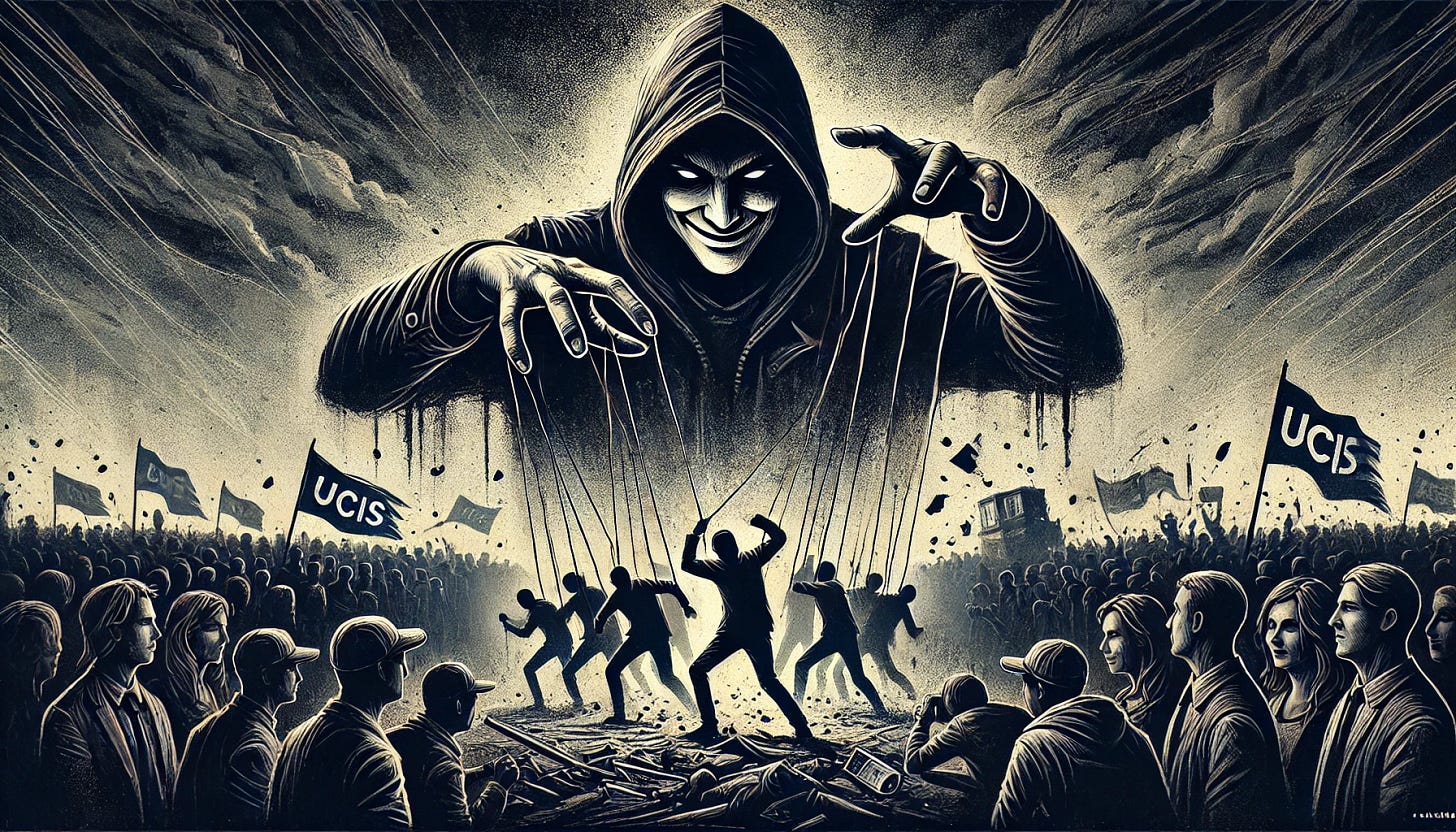
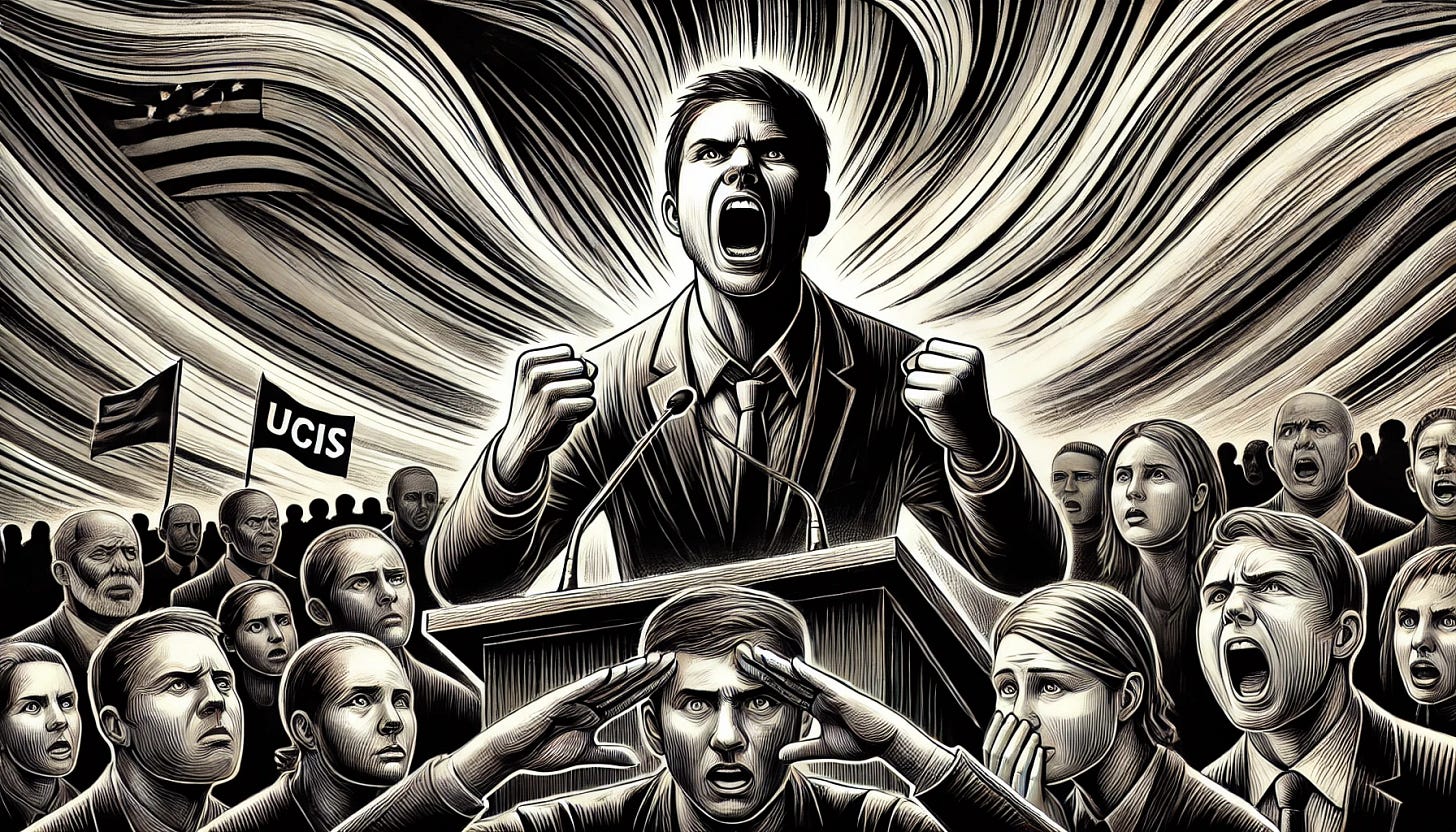



As one who has had a lifetime experience of Cluster B narcissistic abuse within an abusive family system, I can attest that this is precisely how it is. It plays out the same in the macro of society as in the micro of the family. And for the dynamic to perpetuate, it needs all players from all "sides" on board. Extreme self-sacrifice was drummed into me from a young age and the generation before me, my mother, aunts and grandmother were imbued with the same. So, where the chaos at home was kept all hush-hush only one generation before me, it's now raging out in the public arena. Maybe this is a good thing. For patterns to break, we need to become conscious of them. If the chaos gets loud enough and we are each personally hit over the head by the proverbial two-by-four, people may begin to awaken, just as I did in my own life. Let's hope so.
Could've subtitled it "Psychological underpinnings of the left's focus on power," or something similar.